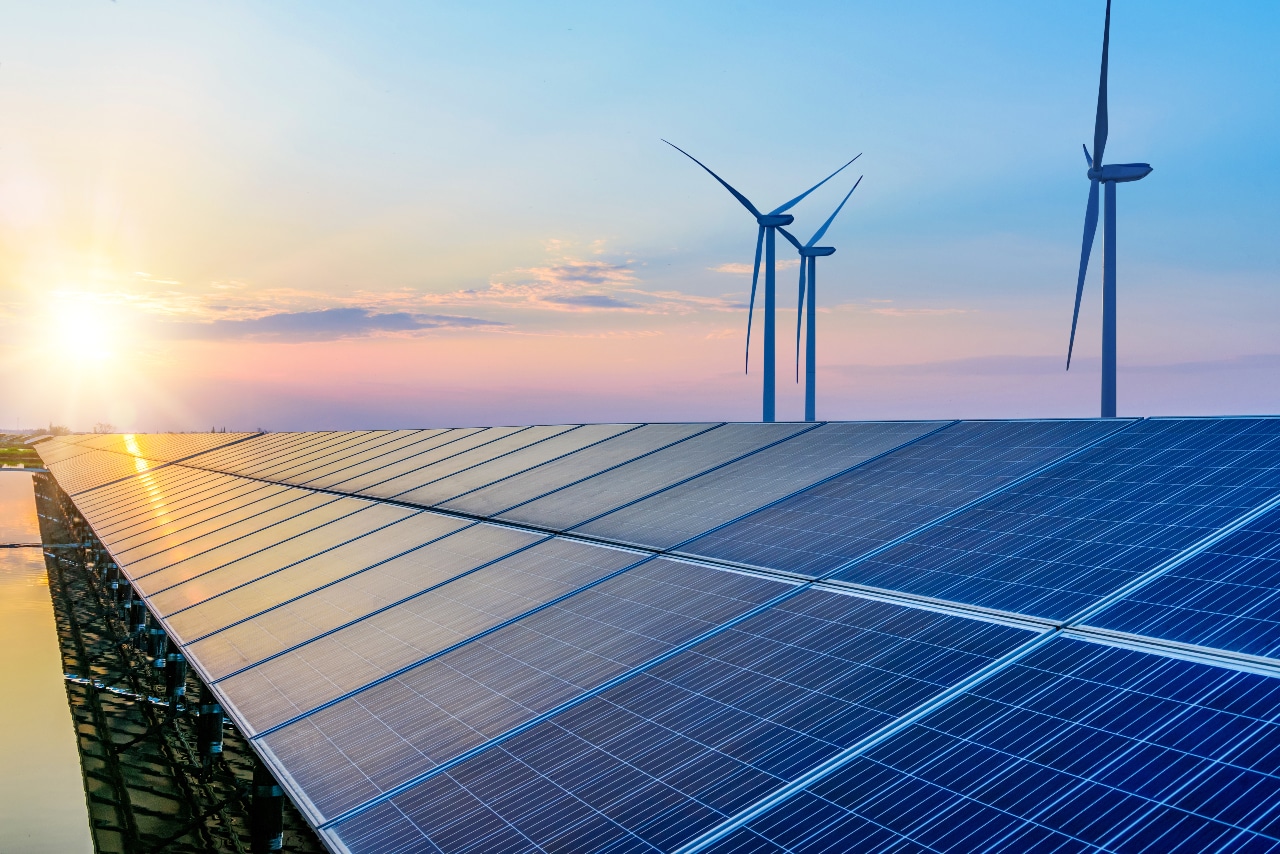The ICC Sustainability in Export Finance Whitepaper represents a joint effort by the ICC Banking Commission and partners to further understand the state of the industry as well as provide policy and product recommendations to help increase the flow of sustainable export finance.
The whitepaper development was supported by The Rockefeller Foundation and a Steering Committee of sixteen leading banks, notably Citi, UniCredit Bank, Mitsubishi UFJ Financial Group, ING, Credit Agricole, BNP Paribas, HSBC, Santander, Sumitomo Mitsui Banking Corporation, DZ Bank, Investec, Standard Chartered, ANZ, Commerzbank, Deutsche Bank and JP Morgan. However, a main takeaway of the report is that this sense of urgency appears to be shared across the industry.
At the moment, the whitepaper notes that 20% of export finance volumes support sustainable transactions in sectors which address both the Environmental and Social categories such as wind and solar power generation, water treatment infrastructure, healthcare facilities, affordable housing and educational facilities in low-income countries. A survey conducted to support the study indicates that there is significant scope for this number to rise in the coming years.

According to the surveyed population of exporters, 90% responded that a sustainability track-record is important in selecting partners. Interviews conducted with corporate treasury and trade finance representatives from companies further demonstrated that businesses around the globe are exploring trade finance solutions – and export finance, in particular – as a mechanism to remain competitive in the wake of tightening climate related regulations.
Among export finance issuers, 95% of bank respondents deemed that export finance should become more sustainable with Export Credit Agencies (ECAs) playing a major role in the industry transformation. ECAs have a mandate of supporting their country’s exporters. Thus, traditionally the ECAs which have been most active in the renewable space have been those who have exporters focused on sustainable activity. One example is Eksport Kredit Fonden (EKF) of Denmark which began a program to fund the development of wind farms through a guarantee program that includes the participation of Vestas, a wind turbine manufacturer.
In the latest findings, 98% of ECA respondents expressed similar sentiments to banks about their ability and intention to embed sustainability into the industry. ECAs look to both their national governments and the Organisation for Economic Co-operation and Development (“OECD”) consensus to establish what they can support and the structure their support will take. In practice, they have demonstrated this by starting to offer (modest) incentives to support sustainable projects, while banks have started to leverage industry-wide frameworks to issue the inaugural green and social export finance loans.
ECA mandates to support projects outside of their national borders can leave them somewhat disconnected with their government’s climate goals. Interview respondents commented that this lack of cohesion resulted in “exporting greenhouse gas emissions”[1]. However, in April 2021, seven European nations (Denmark, France, Germany, Spain, Sweden, the Netherlands, and the UK announced the “Export Finance for Future (E3F)” coalition to phase out their support of fossil fuels.
Thus, the whitepaper highlights that further coordination among ECAs, banks, other governmental bodies, depositary finance institutions, and domestic financing initiatives is needed to improve efficiency and thus support for newer, untried technologies that can make the industry more sustainable.
While government and industry initiatives have scope to accelerate these efforts, OECD and its consensus building approach nevertheless remain of vital importance. The consensus has been updated in the past to address ESG goals, such as allowing longer tenors for renewables projects. 87% of ECA survey respondents contributing to the whitepaper believe that the OECD Arrangement on Officially Supported Export Credits (the “OECD Arrangement”) should be adapted to support more sustainable projects.
The top three recommended changes to the OECD Arrangement, as selected by ECA respondents were:
- Lower minimum pricing for projects that achieve positive measurable environmental and / or social impacts;
- Longer tenors for social and infrastructure projects;
Ensuring that all projects supported by ECAs align with the goals of the Paris Agreement and the target countries’ intended national contributions.
If export finance is to continue to grow and adapt, it will have to keep pace with changes in the sustainable finance industry. In this context, banks and exporters deemed that greater availability of 100%-covered ECA finance support for projects where commercial / debt insurance is not available would be vital to there is sufficient capacity for these projects.
In all, recommendations made by the WP include:
- The modernisation of the OECD Arrangement to reflect and deliver on global sustainability commitments;
- Making ECA mandates and regulations more flexible to be able to swiftly and easily respond to market demands in a cooperative manner;
- Devising means for ECAs and banks to better collaborate and communicate to buyers and exporters about existing sustainable financial products and incentives as well as develop further incentives (ideally as part of the OECD Arrangement;
- Urging exporters and buyers to leverage sources of blended finance to make greener technologies more affordable; and
- To develop standardized reporting metrics for environmental and social impacts of transactions and projects – an effort which international organizations including ICC are already undertaking.
Key buy-in and engagement from export finance stakeholders such as policy makers, ECAs, the Berne Union, exporter and buyer clients and others will be vital in achieving these aims.
About the author: Kelly Wess is an Export Finance transactor at Citi primarily focused on asset-based financings. She was a Steering Committee member of the ICC Sustainable Export Finance Report and is involved in various Citi-internal and external efforts to further sustainability in export financing. These comments are intended for educational purposes and to promote further discussion of the whitepaper.
[1] Quotation from Interview
About the ICC Sustainable Export Finance White Paper:
The whitepaper was prepared independently by International Financial Consulting Ltd (IFCL) and Acre Impact Capital (ACRE) under the oversight of Andrew Wilson, Global Policy Director and Permanent Observer of the International Chamber of Commerce to the United Nations. It was peer-reviewed by Mariane Sondergaard-Jensen (Senior Director, International Regulation and Relations at EKF (Danish Export Credit Agency), Stephanie Sfakianos (Director of Chasecutter Ltd, formerly head of Sustainable Capital Markets at BNP Paribas) and Sylvain Augoyard (Sustainable Finance at WWF-Singapore).
In partnership with ICC, ACRE and ICFL reached out to numerous banks, exporters, borrowers, export credit agencies (“ECA”s), their guardian authorities (the government ministries to whom they report and who have strategic oversight), and other key figures to obtain a variety of perspectives in terms of both defining sustainability, analysing what sustainable activities have been done to date, and determining what would be most useful for the future. This outreach was multi-national around the globe. 500+ survey respondents were reached as part of an online survey and 150+ longform interviews were conducted.
The whitepaper broadly defined sustainability as positive social and environmental impact as expressed in (i) the Sustainable Development Goals, (ii) Paris climate Agreements, and (iii) relevant national and regional frameworks. Click here to request your copy of the whitepaper.

